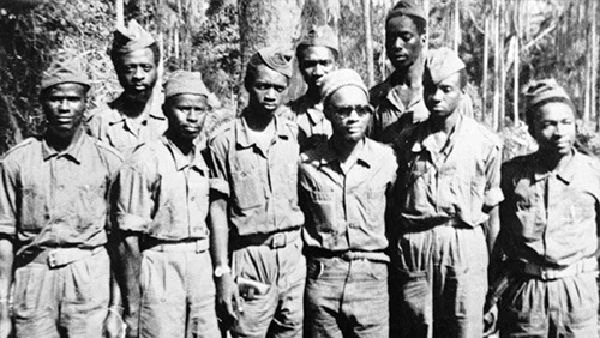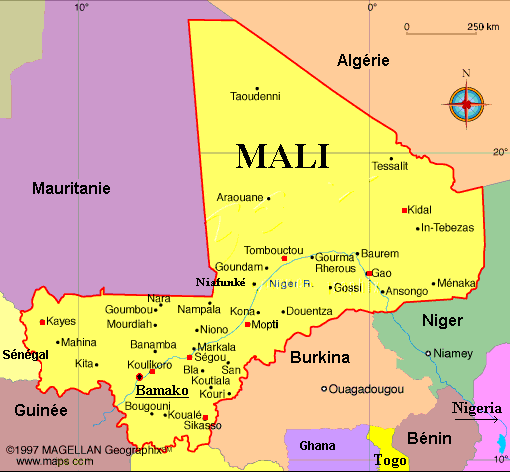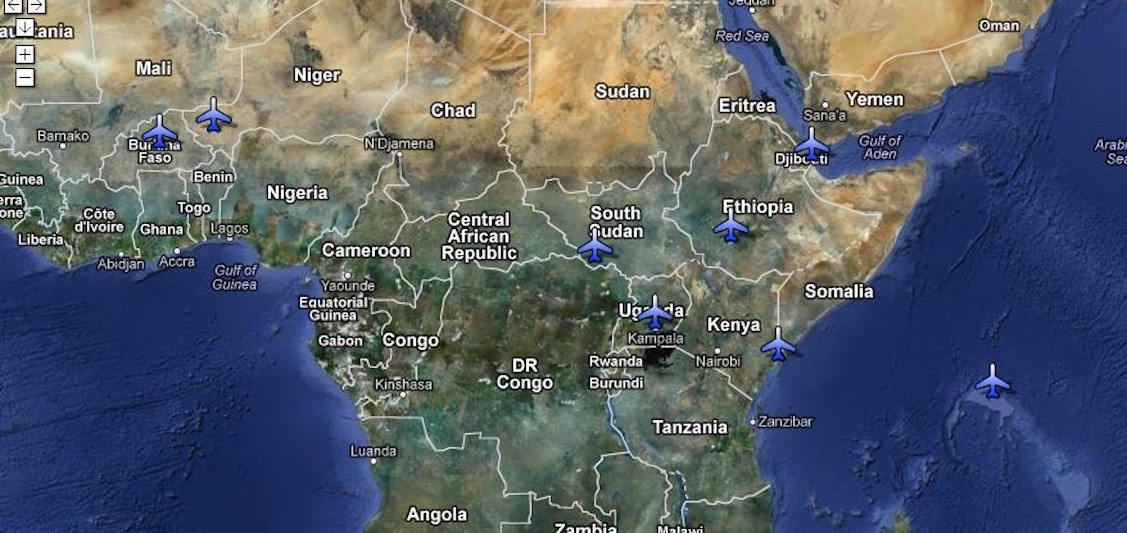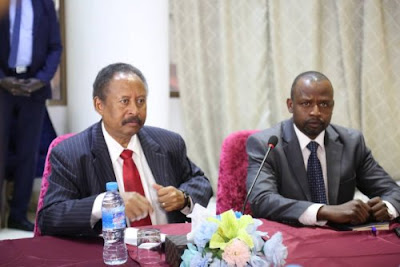“Tell no lies, claim no easy victories”: Remembering Amílcar Cabral
96 years after the birth of revolutionary Amílcar Cabral, his life, struggle and contributions continue to guide us
September 12, 2020 by Amilcar Cabral Study Group

Amílcar Cabral (center) with members of the Partido Africano para a Independência da Guiné e Cabo Verde (PAIGC).
Working people across the world are struggling against the economic domination and exploitation, which has been greatly intensified amid COVID-19 pandemic. On the 96 anniversary of the birth of Amílcar Cabral, we examine the life and revolutionary contributions of Amílcar Cabral, that remind us that a well devised strategy undertaken by an organized people can become the force that unravels a decaying empire.
Fidemar (Son of the sea)
On September 12, 1924 – just a few years before the establishment of the fascist regime of Estado Novo in colonial Portugal – Amílcar Cabral was born to a shopkeeper and school teacher in Bafatá, Guinea-Bissau. Though growing up in this small brickmaking town and trading center of the Portuguese colonizers, Cabral would attend secondary school in Cabo Verde and develop a strong sense of common cause with its people. The laboring people of the archipelago were descendants of enslaved people forcibly brought from Guinea Bissau and greater West Africa. During the anti-colonial struggle for liberation, one of Cabral’s highest aspirations was for the political and national unity between the people of Cabo Verde and Guinea Bissau.
During his studies in post-WWII Portugal, Cabral immersed himself in the anti-war and anti-imperialist student organizations and political movements. He was exposed to radical anti-colonial and socialist thought, alongside future African leaders Agostinho Neto and Mário Pinto de Andrade of Angola, and Marcelino dos Santos and Eduardo Mondlane of Mozambique. Cabral experienced a rapid political and intellectual development that would galvanize him towards the task of returning home and beginning to prepare the conditions for revolution.
Return to the Source
As a young man, Amílcar Cabral saw African people, largely without access to land, starve and suffer through recurring famines. It was the hunger of his people, hunger for decent living and liberation, that drove Cabral to study agronomy, in the hope that he could transform the contradictory situation. Returning to Guinea-Bissau in 1952, Cabral helped establish an experimental farm and conducted an agricultural census, where he was able to engage closely with the people and cultivate deeper knowledge about the conditions in the country. About 12% of the total area of the country was being cultivated in monocultures, and a few cash crops dominated. In 1953, groundnuts constituted 70% of the total exports. He believed that this single-crop economy led people to be dominated and exploited by commerce and taxes.
Cabral’s work not only allowed him to survey the agricultural landscape but its social, historical and cultural dynamics as well. Giving him insight into the fabric of Portuguese colonialism in the daily lives of African people, Cabral saw no other way to eradicate the suffering of his people than to develop and lead a people’s revolution.
National Liberation: Organizing for freedom
Following the end of the Second World War, key political shifts were occurring across the African continent and people’s struggles were underway pursuing national liberation from colonial domination. We see this in the massive uprisings in Algeria in the late 1940s, the pivotal meeting of anti-colonial leaders at the 1945 Pan African Conference in Manchester, the Libyan independence from Italy in 1951,the Mau Mau rebellions growing in Kenya and the increasing momentum in the neighboring French Guinea in early 1950s.
Cabral was inspired and compelled by these events and saw the importance of forging an international front of anti-colonial movements. However, he knew that national liberation could only be fully realized by the inhabitants of each dominated people, saying:
“National liberation and social revolution are not exportable commodities; they are, and increasingly so every day, the outcome of local and national elaboration, more or less influenced by external factors (be they favorable or unfavorable) but essentially determined and formed by the historical reality of each people, and carried to success by the overcoming or correct solution of the internal contradictions between the various categories characterizing this reality.”
Amongst the agricultural workers at an experimental farming unit and former classmates, and in social spaces such as a football sports club, Cabral began the clandestine work of organizing radical forces for national liberation.
The colonial regime became aware of the political intentions behind his work. Exiled from Guinea, Cabral made political homes in countries like Angola, Mozambique and Sao Tome, even helping in the creation of the MPLA.
In 1954, Partido Africano para a Independência da Guiné e Cabo Verde (PAIGC) was formed. The Party became the indispensable instrument in building a revolutionary movement. The strategic objective of the PAIGC was to overthrow the Portuguese colonial system.
The PAIGC chose armed struggle as the path to win national liberation for Guinea-Bissau and Cabo Verde, after witnessing the brutality of Portuguese colonial domination following the Pidjiguiti massacre of 3 August 1959, when 50 striking ship workers were killed by the colonial authorities.
Through the armed struggle, the territories were freed of the colonial forces and became liberated zones. Following the PAIGC inaugural congress in 1964, key decisions were made that began to develop the liberated zones into an alternative, people-led state. By then the PAIGC had control over two-thirds of the country. As Cabral explained in a mass meeting in London, on 26 October 1971:
“We ended the autonomy of guerrilla units, linking them to a guiding committee; and we decided to form units of a regular army. We also decided to start work in the liberated zones, setting up schools, medical posts, a system of commerce and so on, while at the same time reinforcing our political effort.”
This form of waging struggle was an important process of building the agency of the people, and addressing their material and social needs. This was the strength of Cabral’s leadership: a commitment to building the material and social structures for people’s self-determination and liberation. This power of the organized, revolutionary people is what Cabral symbolized; the ultimate threat to the colonial regime who had happily underdeveloped the people, erased their culture and history, violated and exploited their humanity.
A dream deferred
In his small corner of the world, Cabral led a revolution that would lead to the collapse of the entire Portuguese empire in Africa and fuel the liberation of the people of Portugal from almost five decades of fascist dictatorship. Yet, in the decades that followed his assassination, the full liberation of the African people was deferred, thwarted by neo-colonialism, imperialism and corruption. For the African people, the COVID-19 pandemic comes as a historic reckoning of how colonial economic relations and social conditions, against which Amílcar Cabral fought, have not changed.
In the case of the health care system of a population well over one million, Cabral observed that “throughout the golden age of Portuguese colonialism we had only two hospitals, with a total of 300 beds, in the whole country and only 18 doctors, 12 of them in Bissau.” As of May 2020, Guinea-Bissau had 50 intensive care beds and 10% of the necessary equipment to deal with COVID-19. By 16 June, more than 170 of Guinea-Bissau’s 2,000 health workers had contracted coronavirus.
The anger has long been brewing over the failing economic system. Its inability to prioritize peoples health and well being is spilling over. Like Cabral, today the people must uncover the cause of people’s misery in order to begin to build a new social order that put the lives of people above profit.
The Amílcar Cabral Study Group is comprised of Lindi, Mika, Vuyo, Subin, Blaise, Ovidiu, Zoe and Ahmed. This is part of their research done in a course on Marxism and National Liberation.
“Tell no lies, claim no easy victories”: Remembering Amílcar Cabral
96 years after the birth of revolutionary Amílcar Cabral, his life, struggle and contributions continue to guide us
September 12, 2020 by Amilcar Cabral Study Group

Amílcar Cabral (center) with members of the Partido Africano para a Independência da Guiné e Cabo Verde (PAIGC).
Working people across the world are struggling against the economic domination and exploitation, which has been greatly intensified amid COVID-19 pandemic. On the 96 anniversary of the birth of Amílcar Cabral, we examine the life and revolutionary contributions of Amílcar Cabral, that remind us that a well devised strategy undertaken by an organized people can become the force that unravels a decaying empire.
Fidemar (Son of the sea)
On September 12, 1924 – just a few years before the establishment of the fascist regime of Estado Novo in colonial Portugal – Amílcar Cabral was born to a shopkeeper and school teacher in Bafatá, Guinea-Bissau. Though growing up in this small brickmaking town and trading center of the Portuguese colonizers, Cabral would attend secondary school in Cabo Verde and develop a strong sense of common cause with its people. The laboring people of the archipelago were descendants of enslaved people forcibly brought from Guinea Bissau and greater West Africa. During the anti-colonial struggle for liberation, one of Cabral’s highest aspirations was for the political and national unity between the people of Cabo Verde and Guinea Bissau.
During his studies in post-WWII Portugal, Cabral immersed himself in the anti-war and anti-imperialist student organizations and political movements. He was exposed to radical anti-colonial and socialist thought, alongside future African leaders Agostinho Neto and Mário Pinto de Andrade of Angola, and Marcelino dos Santos and Eduardo Mondlane of Mozambique. Cabral experienced a rapid political and intellectual development that would galvanize him towards the task of returning home and beginning to prepare the conditions for revolution.
Return to the Source
As a young man, Amílcar Cabral saw African people, largely without access to land, starve and suffer through recurring famines. It was the hunger of his people, hunger for decent living and liberation, that drove Cabral to study agronomy, in the hope that he could transform the contradictory situation. Returning to Guinea-Bissau in 1952, Cabral helped establish an experimental farm and conducted an agricultural census, where he was able to engage closely with the people and cultivate deeper knowledge about the conditions in the country. About 12% of the total area of the country was being cultivated in monocultures, and a few cash crops dominated. In 1953, groundnuts constituted 70% of the total exports. He believed that this single-crop economy led people to be dominated and exploited by commerce and taxes.
Cabral’s work not only allowed him to survey the agricultural landscape but its social, historical and cultural dynamics as well. Giving him insight into the fabric of Portuguese colonialism in the daily lives of African people, Cabral saw no other way to eradicate the suffering of his people than to develop and lead a people’s revolution.
National Liberation: Organizing for freedom
Following the end of the Second World War, key political shifts were occurring across the African continent and people’s struggles were underway pursuing national liberation from colonial domination. We see this in the massive uprisings in Algeria in the late 1940s, the pivotal meeting of anti-colonial leaders at the 1945 Pan African Conference in Manchester, the Libyan independence from Italy in 1951,the Mau Mau rebellions growing in Kenya and the increasing momentum in the neighboring French Guinea in early 1950s.
Cabral was inspired and compelled by these events and saw the importance of forging an international front of anti-colonial movements. However, he knew that national liberation could only be fully realized by the inhabitants of each dominated people, saying:
“National liberation and social revolution are not exportable commodities; they are, and increasingly so every day, the outcome of local and national elaboration, more or less influenced by external factors (be they favorable or unfavorable) but essentially determined and formed by the historical reality of each people, and carried to success by the overcoming or correct solution of the internal contradictions between the various categories characterizing this reality.”
Amongst the agricultural workers at an experimental farming unit and former classmates, and in social spaces such as a football sports club, Cabral began the clandestine work of organizing radical forces for national liberation.
The colonial regime became aware of the political intentions behind his work. Exiled from Guinea, Cabral made political homes in countries like Angola, Mozambique and Sao Tome, even helping in the creation of the MPLA.
In 1954, Partido Africano para a Independência da Guiné e Cabo Verde (PAIGC) was formed. The Party became the indispensable instrument in building a revolutionary movement. The strategic objective of the PAIGC was to overthrow the Portuguese colonial system.
The PAIGC chose armed struggle as the path to win national liberation for Guinea-Bissau and Cabo Verde, after witnessing the brutality of Portuguese colonial domination following the Pidjiguiti massacre of 3 August 1959, when 50 striking ship workers were killed by the colonial authorities.
Through the armed struggle, the territories were freed of the colonial forces and became liberated zones. Following the PAIGC inaugural congress in 1964, key decisions were made that began to develop the liberated zones into an alternative, people-led state. By then the PAIGC had control over two-thirds of the country. As Cabral explained in a mass meeting in London, on 26 October 1971:
“We ended the autonomy of guerrilla units, linking them to a guiding committee; and we decided to form units of a regular army. We also decided to start work in the liberated zones, setting up schools, medical posts, a system of commerce and so on, while at the same time reinforcing our political effort.”
This form of waging struggle was an important process of building the agency of the people, and addressing their material and social needs. This was the strength of Cabral’s leadership: a commitment to building the material and social structures for people’s self-determination and liberation. This power of the organized, revolutionary people is what Cabral symbolized; the ultimate threat to the colonial regime who had happily underdeveloped the people, erased their culture and history, violated and exploited their humanity.
A dream deferred
In his small corner of the world, Cabral led a revolution that would lead to the collapse of the entire Portuguese empire in Africa and fuel the liberation of the people of Portugal from almost five decades of fascist dictatorship. Yet, in the decades that followed his assassination, the full liberation of the African people was deferred, thwarted by neo-colonialism, imperialism and corruption. For the African people, the COVID-19 pandemic comes as a historic reckoning of how colonial economic relations and social conditions, against which Amílcar Cabral fought, have not changed.
In the case of the health care system of a population well over one million, Cabral observed that “throughout the golden age of Portuguese colonialism we had only two hospitals, with a total of 300 beds, in the whole country and only 18 doctors, 12 of them in Bissau.” As of May 2020, Guinea-Bissau had 50 intensive care beds and 10% of the necessary equipment to deal with COVID-19. By 16 June, more than 170 of Guinea-Bissau’s 2,000 health workers had contracted coronavirus.
The anger has long been brewing over the failing economic system. Its inability to prioritize peoples health and well being is spilling over. Like Cabral, today the people must uncover the cause of people’s misery in order to begin to build a new social order that put the lives of people above profit.
The Amílcar Cabral Study Group is comprised of Lindi, Mika, Vuyo, Subin, Blaise, Ovidiu, Zoe and Ahmed. This is part of their research done in a course on Marxism and National Liberation.
“Tell no lies, claim no easy victories”: Remembering Amílcar Cabral







